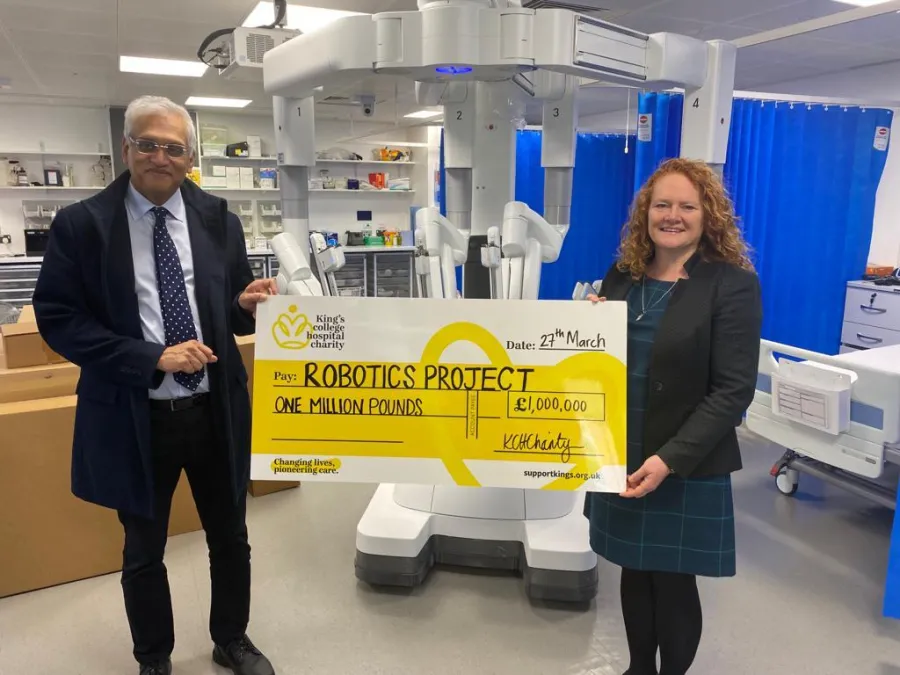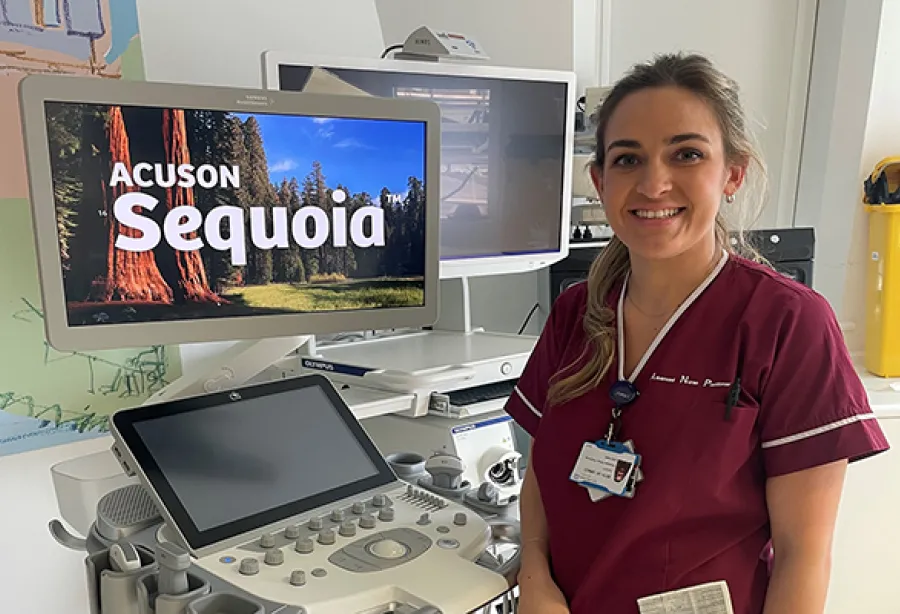In 2022 , we made our largest grant for several years, providing £1 million towards a state-of-the-art Robot Assisted Surgical (RAS) system to help transform patient care.
The new Da Vinci Xi RAS system will advance surgery at King’s, enabling surgical staff to carry out procedures that are more precise and less invasive than open and laparoscopic surgery. With shorter recovery times and fewer complications, patients will be able to return home sooner, freeing up bedspace for patients on the waiting list.

The RAS system will:
- Help develop potential new surgical solutions for complex cases
- Give surgeons increased visibility and dexterity
- Ensure greater precision and minimal invasiveness
- Reduce blood loss, pain, scarring and infection
- Decrease the need for additional procedures
- Stimulate an exciting surgical research programme
Robot-assisted surgeries will also help tackle health inequalities in the wider King’s community by making it possible for even more people to receive treatment. For those who are frail or have multiple illnesses (for whom traditional surgery may be deemed unsafe), the RAS system will reduce their risk of complications and even death.
The RAS system will be used for general surgery, as well as other specialist surgical fields, including bariatrics, colorectal, gynaecology and urology. This will help patients with a wide range of conditions, including cancer, complex endometriosis, abdominal wall hernias, diseases affecting the large intestine, bladder diseases and more.
Tahira Hasnat was the first patient to undergo surgery using the new robotic system. After the surgery she said, "I was surprised by the size of incisions, they are so small I can hardly see them. I had no significant pain and recovery was smooth with no issues."

